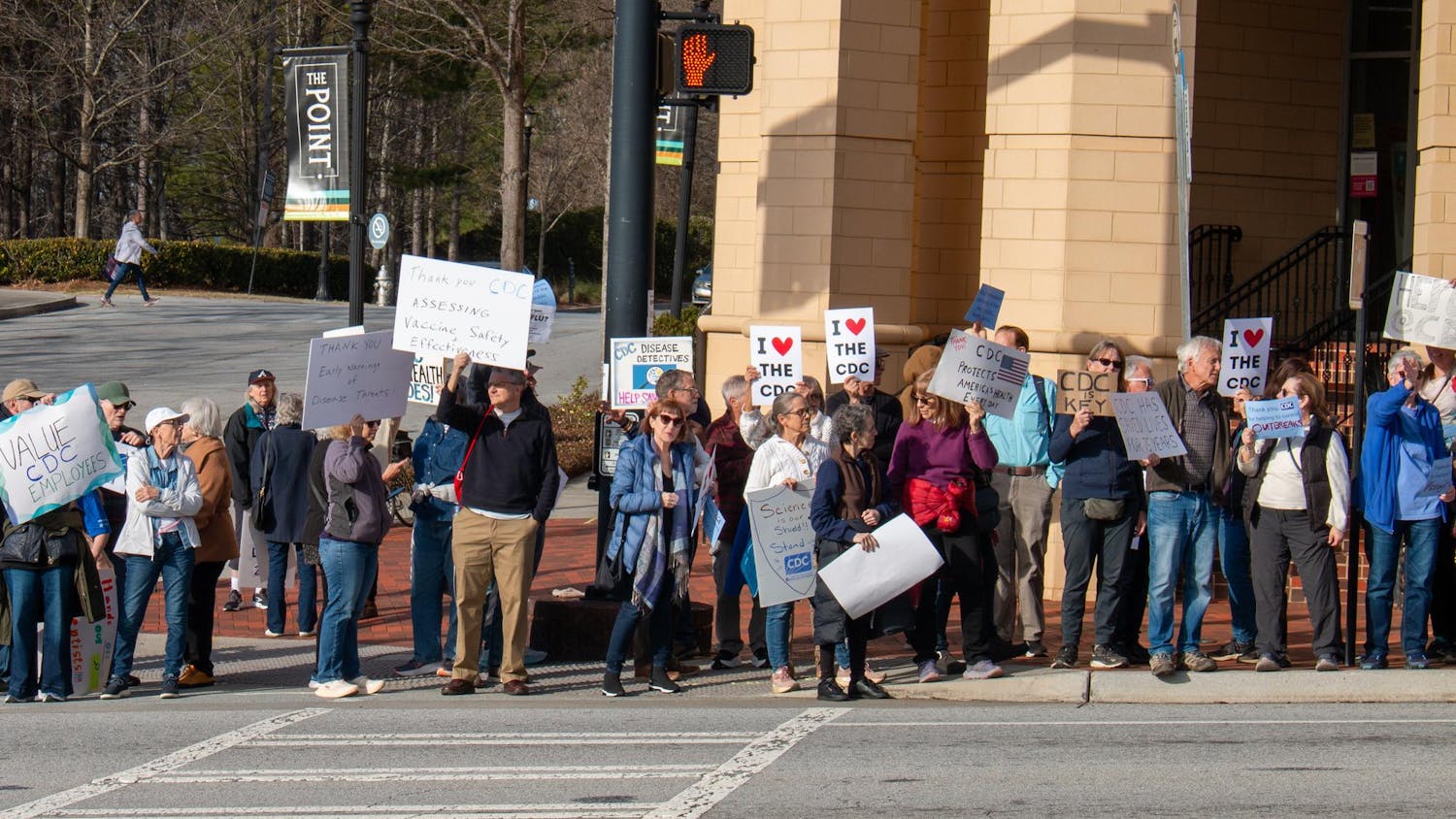
In an editorial published in the Wheel last week, Ducemus announced that it will help select the members of a committee, called the Greek Life Task Force, designed to discuss and recommend solutions to issues surrounding Greek life at Emory. The society acknowledged that Greek life is not perfect but also criticized the administration’s treatment of the Greek community.
Over the last few years, the administration has made some major changes to the way it addresses problems raised within the Greek community. For example, last semester, the student body was officially informed that two fraternities were removed from campus through a campus email stating that there were two vacancies on Eagle Row. In addition to this major change, some Greek organizations now have RAs, more administrative walk-throughs and downgraded furniture. Regardless of whether or not these changes are better for the Emory community, they are only a snapshot of the tension that has been brewing among members of Greek organizations, administrators and other concerned members of the community.
While we recognize the rationale behind some of these decisions, it does not seem as though the University has effectively communicated their reasoning or considered the will of the students. In the past, Greek student councils have been bogged down with trying to meet the administration’s expectations while also listening to their student constituents. These councils have resulted in rough outlines of plans but have not led to any concrete actions that have tangibly improved Greek life.
This task force seems like yet another method to give the administration an air of democracy without truly acknowledging the diversity in student opinions regarding Greek life. It would disappoint us to see this committee fall by the wayside and continue the pattern of ineffectual governance.
Since everyone involved in these conversations can agree on one thing – that something needs to change – the people making these big decisions need to be held accountable. That means the process by which these changes occur also needs to be held accountable. Accountability is inherently impossible for an organization that prides itself on anonymity. Ducemus has stated that it is pro-Greek life, but asking the community to trust an anonymous group to select a group of students that may end up shaping policy for a huge portion of campus is unfair.
While bringing together students who represent different Greek organizations to tackle issues and create Emory Greek Life seems like a good idea, it can only succeed if the selection process is publicized and if the representatives are chosen to allow for balance. We at the Wheel have observed a variety of opinions about the Greek life at Emory, and we hope this diversity will be reflected in the students chosen for the task force.
Moreover, we also strongly encourage that the committee has a fair representation of non-Greek members, since the Greek presence on campus affects all members of the community.
Finally, we would like to stress that the committee should not only come up with constructive ideas, but also make a sincere effort to take action and implement these ideas.
Many Greek organizations at Emory are veiled in secrets. Secret rituals, hazing and sexual assault are taboo topics within the Greek community. The last thing the Row needs is more secrets. It is time for the veil to be lifted and for the community to have a candid, productive and fair discussion. So why should a secret group of individuals influence the future of Greek life? No more secrets.
The above staff editorial represents the majority opinion of the Wheel‘s editorial board.
Read More
Trending









